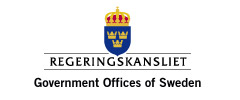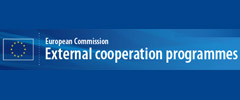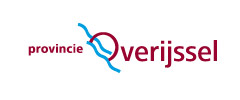Capacity Building and Strategic Partnerships for Chemicals Safety in the Republic of Serbia
Building capacity and strengthening cooperation between government agencies, NGOs, and other civil society sectors, to strengthen legislation, enforcement and partnerships for chemical safety, in particular harmful chemicals in products
10.04.2016 | WECF Project
| Countries: | Republic of Serbia |
| Donors: | SAICM Quick Start Programme, UNEP |
| Partners: | UNDP- Serbia, ALHem Safer Chemicals Alternative |
| Issues: | Chemicals & Health |
| Duration: | 05/2015 - 10/2016 |
The project “Capacity Building and Strategic Partnerships for Chemicals Safety in the Republic of Serbia“ supports the implementation of policies and legislation on chemicals safety, by building the capacity of local stakeholders, such as NGOs, consumer organizations, media, science, and health professionals.
The related stakeholders are seen as key factors for a successful implementation of policies and legislation. In the near future, these stakeholder groups should provide significant support to the newly established regulatory system and become an important partner in reaching the general public and disseminating information regarding harmful chemicals in products found on the Serbian market.
The project will benefit from WECF’s ongoing programmes on safe chemicals and health. For instance, WECF “translates” REACH requirements regarding Substances of Very High Concern (SVHCs) into easily understandable consumer guide brochures: Toys Guide, Detergents Guide, Baby Care Products Guide. This is directly linked to the better implementation of the REACH regulation, which stipulates amongst others in a number of consumer rights such as the obligation of retailers to inform consumers within 45 days if a products contains SVHCs.
WECF campaigns for a healthy and toxic free environment for all have resulted in numerous publications and best practice examples that will be shared with the partner and participants of the project trainings and policy dialogues.
Project objectives
• Strengthening cooperation between civil society organizations and MAEP (Ministry of Agriculture and Environmental Protection) to generate support for the implementation of the new laws and regulation and to establish sound and sustainable partnerships with identified NGOs on chemical safety, on national and international level.
• Strengthening cooperation between civil society organizations, authorities, scientific community, healthcare specialists, trade unions, and other stakeholders in Serbia with the aim to improve consumer protection and product safety by providing knowledge about chemicals in products, such as toys.
• Strengthening capacity of local civil society organizations to promote participative democracy, contribute to national policy development and raise awareness with the general public on measures for consumer and environmental protection particularly regarding product and chemical safety.
• Build capacities of healthcare specialists to deal with the issues of prevention of hazardous chemicals in products.
• Build capacities of journalists to report and inform concerning chemicals in products, preventive actions, consumer rights and implementation of legislation in this field.
• Promote knowledge transfer between civil society organizations on the issue of policies and legislation regarding consumer and environmental protection in particular chemicals in products such as toys.
• Build sustainable networks of civil society organizations in Balkan countries, and cooperate with European-wide networks, to engage in constructive dialogue with producers, retailers and policy makers regarding consumer protection measures particularly regarding hazardous substances.
• Empower women’s organizations to initiate in policy processes and community activities for consumer promotion, product and chemical safety and sustainable consumption and production, based on their views and specific needs.
• To develop training tools on product and chemical safety for local NGOs. To strengthen cooperation among Balkan, EU and international Civil Society Organizations (CSO) on product and chemical safety. To improve product and chemical safety policies and practices throughout the Balkans through a regional conference and coordination meetings.
Project Activities:
• Awareness raising tool to inform the public will be developed and used as throughout the project
• Workshops for media, experts and consumer organizations, as well as interested NGOs on the issue of hazardous chemicals in products will be carried out
• Regional conference will focus on participation of relevant stakeholders and will highlight best practices on implementation of chemical safety
• Connecting national activities to SAICM
Consumers will benefit in the longer term from this project in terms of an increased awareness of business and state authorities, journalists, scientists and healthcare specialists on the issue of consumer safety and corporate social responsibility.
The Project is funded by the Strategic Approach to International Chemicals Management (SAICM), Quick Start Programme Trust Fund

Partners:
ALHem Safer Chemicals Alternative

UNDP

Related News
CSOs meet in Serbia to discuss outcome of SAICM project
A final conference related to the project “Capacity Building and Strategic Partnership for Chemicals safety in the Republic of Serbia“ was performed on the 31st of October in Belgrade.
23.11.2016
Serbian journalists and consumer associations highly interested in chemical safety
Around 30 journalists met with representatives from the NGO ALHem, UNDP Serbia, Serbian public authorities and Ministries, science, and consumer organisations to discuss various topics of chemical safety in Serbia
14.01.2016




































